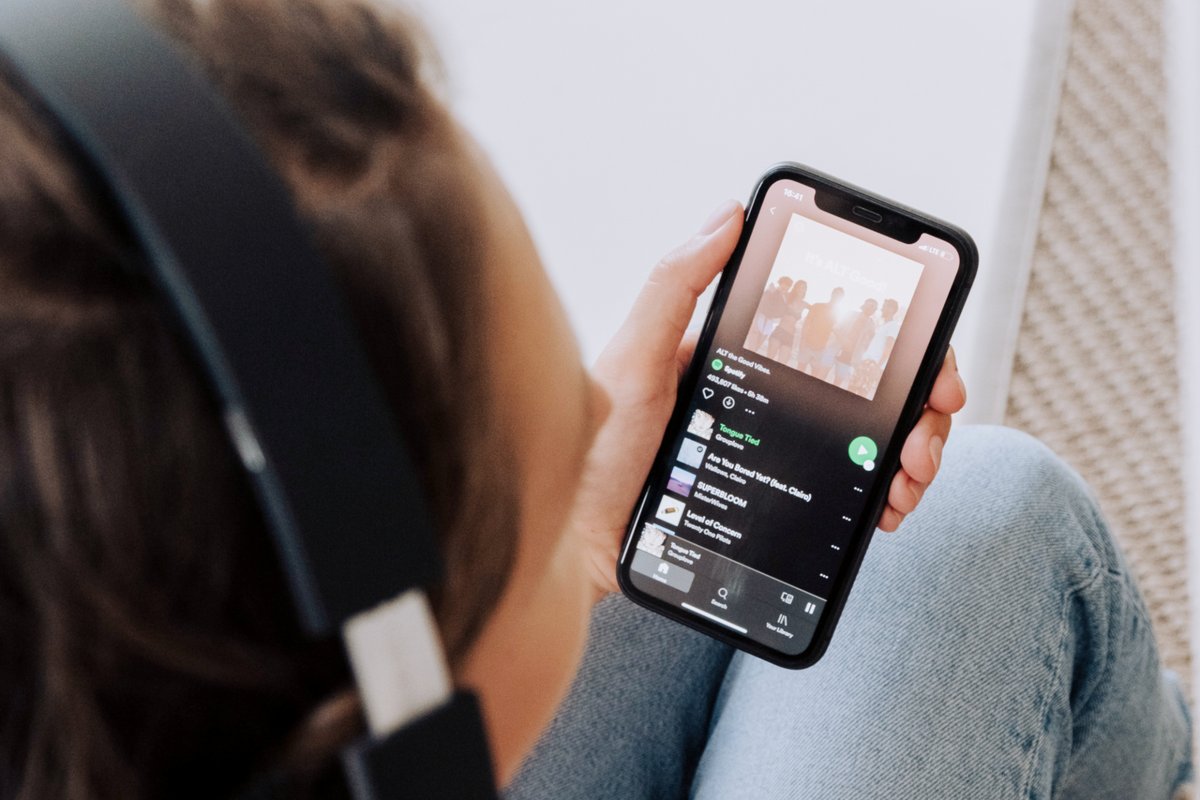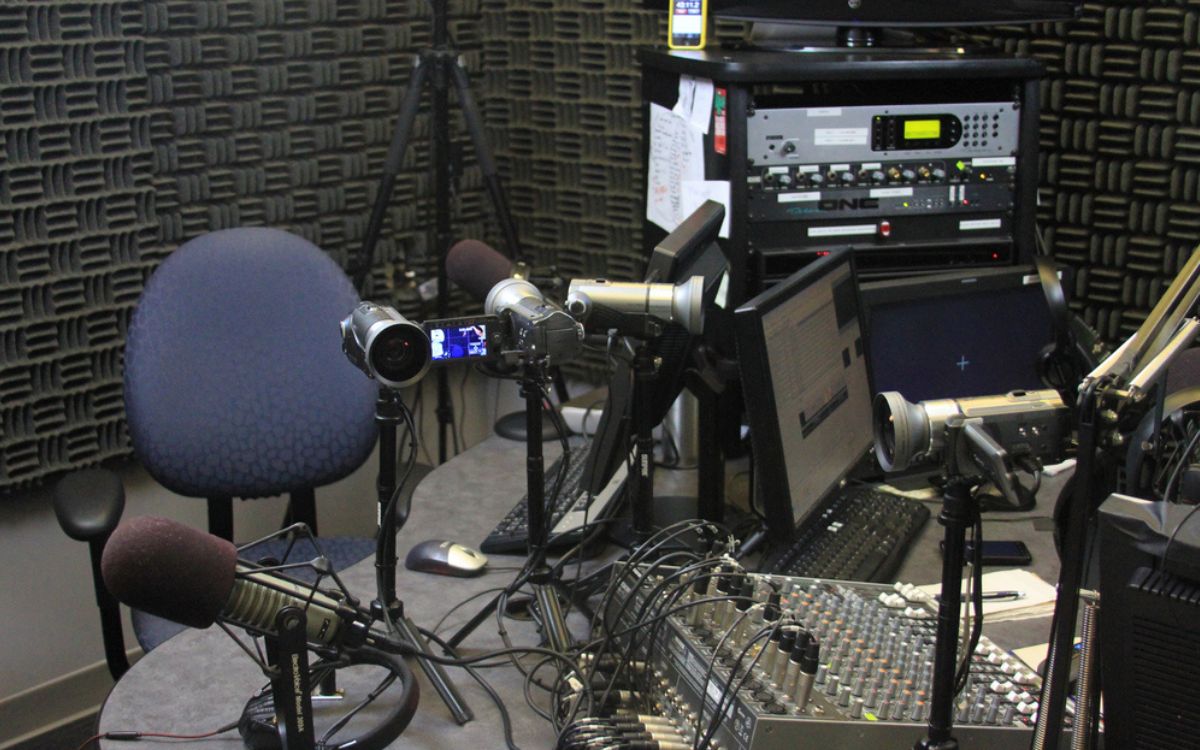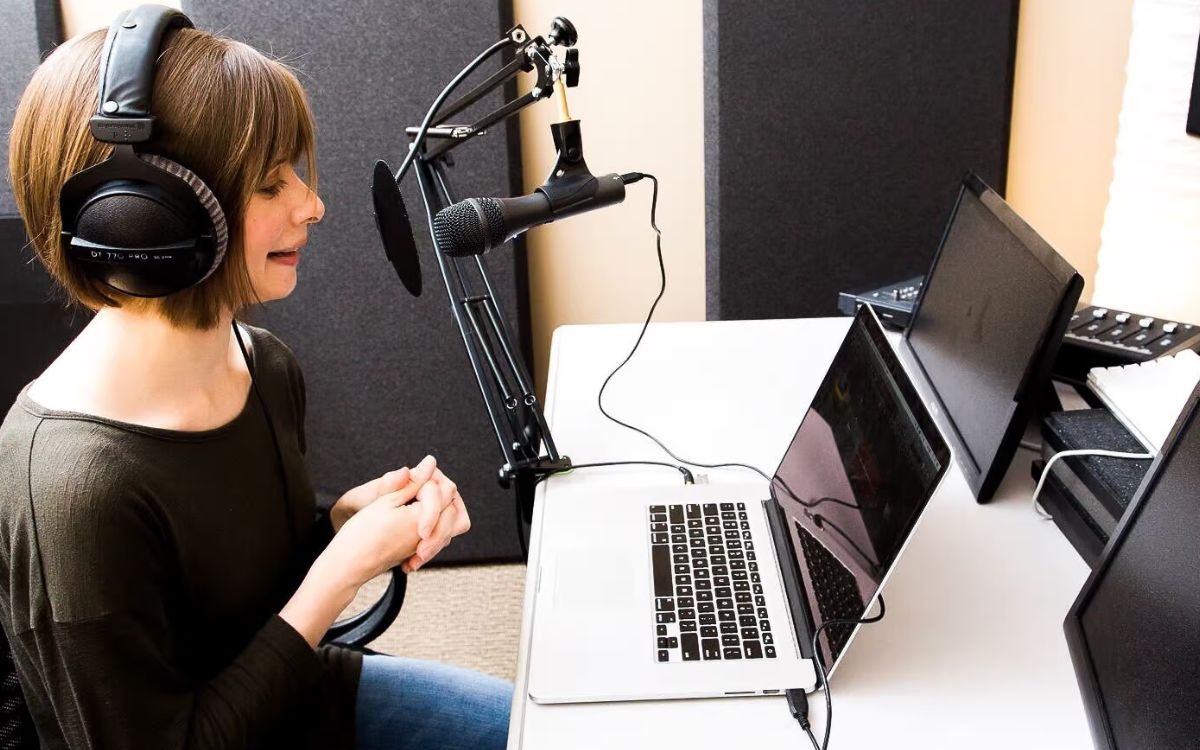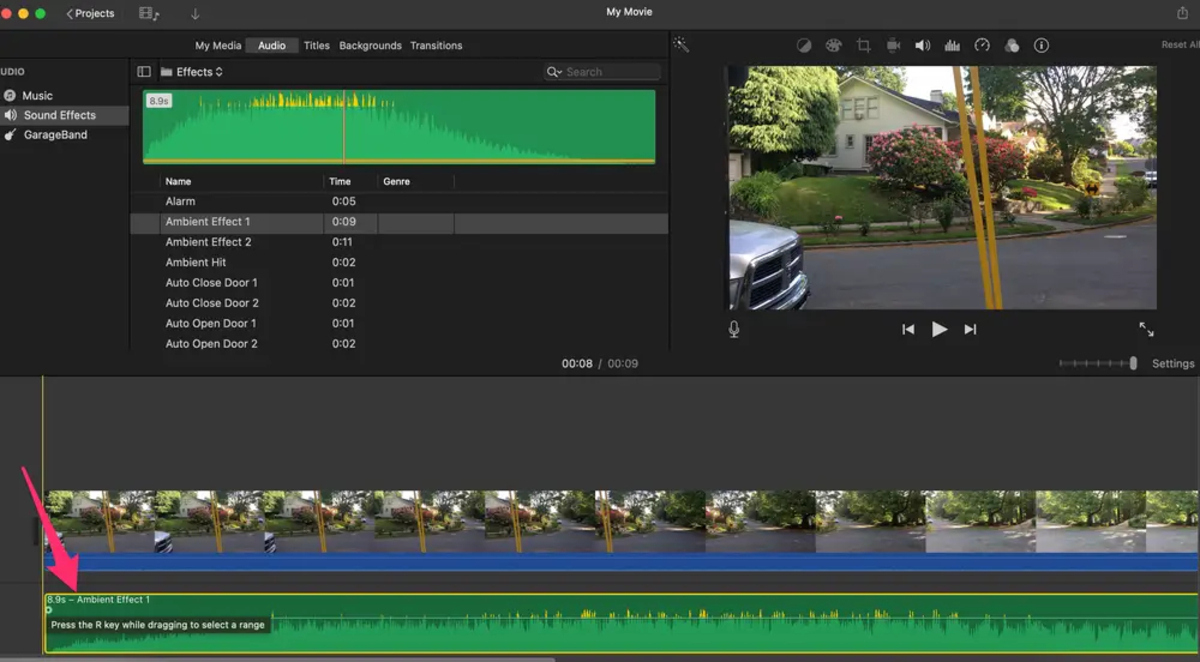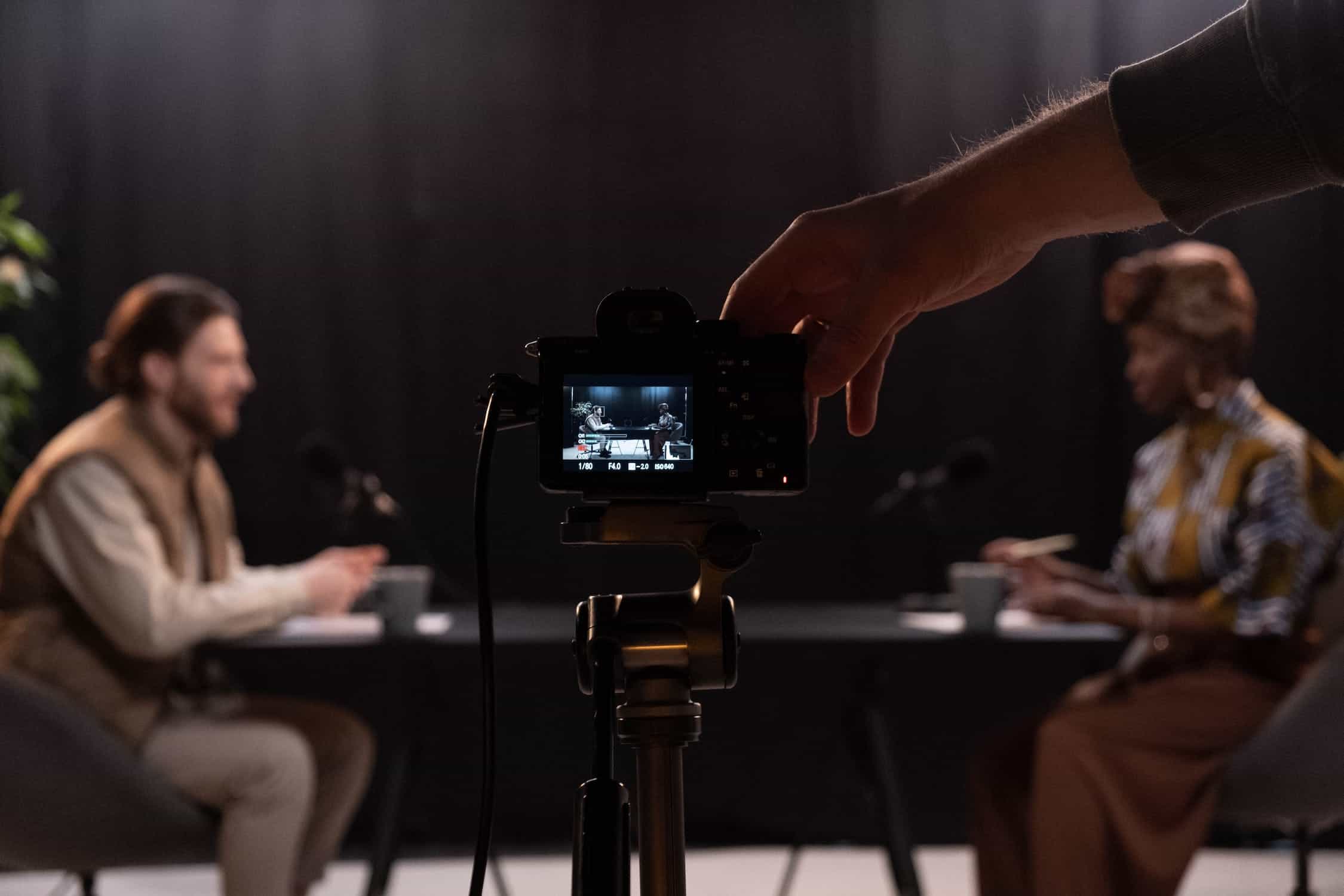Home>Events & Info>Podcast>How Do You Cite A Podcast In Apa


Podcast
How Do You Cite A Podcast In Apa
Modified: January 22, 2024
Learn how to properly cite a podcast in APA format. Discover the guidelines and examples for referencing this type of audio content. Get started now!
(Many of the links in this article redirect to a specific reviewed product. Your purchase of these products through affiliate links helps to generate commission for AudioLover.com, at no extra cost. Learn more)
Table of Contents
Introduction
Welcome to the world of podcasts! With their increasing popularity and accessibility, podcasts have become a valuable source of information, entertainment, and enrichment. Whether you’re a podcast creator or a researcher referencing podcast episodes, it’s essential to know how to properly cite a podcast in APA (American Psychological Association) format.
Citing podcasts is crucial, as it allows readers and listeners to identify and locate the specific audio content you are referencing. Additionally, citing podcasts in APA format demonstrates your commitment to academic integrity and ensures that proper credit is given to the creators of the content.
In this article, we will explore the basic format of APA citation for podcasts and provide step-by-step instructions for citing both podcast episodes and podcast series. We will also provide examples to illustrate the citation process.
So, whether you’re writing a research paper, a blog post, or creating an academic presentation, let’s dive into the world of APA citations for podcasts and discover the correct way to give credit where it’s due!
Basic Format of APA Citation for Podcasts
Citing a podcast in APA format follows a specific structure that includes essential information for identifying and locating the podcast. The basic format includes the following elements:
- Host(s) or creator(s): Provide the name of the podcast host(s) or creator(s) in the author position. List the last name followed by initials (e.g., Smith, J. A.). If there are multiple hosts or creators, separate their names with commas.
- (Year, Month Day): Specify the date of the podcast episode in parenthesis using the year, followed by the abbreviated month, and the day of the episode’s release (e.g., (2022, January 15)). If the specific date is not available, use the year of release without the month and day.
- Episode title: Include the title of the specific podcast episode in sentence case. Only the first letter of the first word and any proper nouns should be capitalized. Enclose the episode title in quotation marks.
- [Audio podcast episode]: Indicate that this is an audio podcast episode by including this phrase in square brackets immediately after the episode title.
- Podcast title: Provide the name of the podcast itself in italics. Capitalize the first letter of each major word in the title.
- URL or DOI: If the podcast offers a direct URL or a DOI (Digital Object Identifier) for the episode, include it at the end of the citation. If there is no available URL or DOI, omit this part.
It’s important to note that the format for citing a podcast episode and a podcast series may differ slightly. In the following sections, we will explore how to effectively cite both scenarios.
How to Cite a Podcast Episode in APA
Citing a podcast episode in APA format requires specific details to accurately identify and locate the episode. Follow these steps to construct a proper citation:
- Start with the host(s) or creator(s) of the episode, listing their last name followed by their initials. If there are multiple hosts or creators, separate their names with commas.
- Include the release date of the episode in parenthesis using the year, followed by the abbreviated month, and the day (e.g., (2022, January 15)). If the exact release date is unknown, include the year only.
- Wrap the title of the specific episode in quotation marks and capitalize the first letter of the first word and any proper nouns.
- Indicate that this is an audio podcast episode by including the phrase “[Audio podcast episode]” in square brackets immediately after the episode title.
- Italicize the title of the podcast, capitalizing the first letter of each major word.
- If a specific URL or DOI is available for the episode, include it at the end of the citation. Make sure the URL is clickable and up-to-date.
Here’s an example of how to cite a podcast episode following these guidelines:
Example:
Smith, J. A., & Johnson, M. (2022, January 15). “The Importance of Sleep” [Audio podcast episode]. The Mindful Life. Retrieved from https://www.examplepodcast.com/episode123
Remember to modify the citation to reflect the actual names of the hosts, the release date, the episode title, the podcast’s title, and the URL or DOI, if applicable.
In the next section, we will explore how to cite an entire podcast series in APA format.
How to Cite a Podcast Series in APA
When citing an entire podcast series in APA format, you need to provide information that identifies the podcast as a whole rather than a specific episode. Follow these steps to properly cite a podcast series:
- List the host(s) or creator(s) of the podcast series, using the last name followed by initials. If there are multiple hosts or creators, separate their names with commas.
- If available, include the release date of the first episode of the series in parenthesis using the year, followed by the abbreviated month, and the day (e.g., (2021, November 3)). If the exact release date is unknown, include the year only.
- Italicize the title of the podcast series, capitalizing the first letter of each major word.
- If a specific URL or website is associated with the podcast series, provide it at the end of the citation. Ensure that the URL is clickable and up-to-date.
Below is an example of how to cite a podcast series in APA format:
Example:
Smith, J. A., & Johnson, M. (2021, November 3). The Mindful Life. Retrieved from https://www.examplepodcast.com
Remember to adjust the citation to match the actual names of the hosts, the release date of the first episode, the title of the podcast series, and the URL or website associated with it.
Now that we’ve covered how to cite both podcast episodes and podcast series in APA format, let’s take a look at some additional examples to further clarify the citation process.
Examples of APA Citations for Podcasts
To help you better understand how to format APA citations for podcasts, let’s explore a few examples:
-
Podcast Episode:
Host(s): Johnson, S.
Release Date: (2022, February 10)
Episode Title: “The Power of Positive Thinking”
Podcast Title: The Happy Mind
URL: https://www.happymindpodcast.com/episode24Citation:
Johnson, S. (2022, February 10). “The Power of Positive Thinking” [Audio podcast episode]. The Happy Mind. Retrieved from https://www.happymindpodcast.com/episode24 -
Podcast Series:
Host(s): Thompson, L., Williams, R., & Martinez, M.
Release Date: (2020)
Podcast Title: The Science of Wellness
URL: https://www.scienceofwellnesspodcast.comCitation:
Thompson, L., Williams, R., & Martinez, M. (2020). The Science of Wellness. Retrieved from https://www.scienceofwellnesspodcast.com
Remember to adapt the examples to fit the specific details of the podcast you are citing.
Now that you have seen some examples, let’s discuss a few helpful tips to consider when citing podcasts in APA format.
Tips for Citing Podcasts in APA Format
When citing podcasts in APA format, consider the following tips to ensure accurate and proper citations:
- Use the most relevant information: Include the essential details such as the host(s) or creator(s), release date, episode title, and podcast title. If a specific URL or DOI is available, include it for easy access.
- Italicize the podcast title: Italicize the title of the podcast, both when citing an episode and when citing the podcast series as a whole. This helps differentiate it from other elements in the citation.
- Provide clickable URLs: If a direct URL is available for the podcast episode or series, include it in the citation. Make sure the URL is accurate, up-to-date, and clickable, allowing readers and listeners to navigate to the original source easily.
- Check proper capitalization: Follow APA guidelines for capitalization, which generally involves capitalizing the first letter of major words in titles. However, do not capitalize every word unless it is a proper noun or the beginning of a sentence.
- Check for updates: Ensure that the URLs you provide are active and functional. Podcast websites may change or episodes may be archived or removed over time. Regularly check and update the URLs if necessary.
- Be consistent: Maintain consistency throughout your citations. Use the same format for all your podcast citations, following the established APA guidelines. This creates a professional and uniform presentation of your references.
By following these tips, you can create accurate and properly formatted citations for podcasts in APA style.
Now, let’s address some frequently asked questions (FAQs) regarding APA citations for podcasts.
Frequently Asked Questions (FAQs)
Here are some frequently asked questions about APA citations for podcasts:
- Do I need to cite a podcast in APA format?
Yes, it is important to cite podcasts in APA format to give proper credit to the creators and allow others to locate the original source of information. - What if the podcast episode does not have a specific release date?
If the exact release date is unknown, you can include the year of release without the month and day. However, it is best to provide as much detail as possible to aid in identification. - Can I include timestamps in the citation?
While APA guidelines do not require including timestamps, you may include them in the text of your paper or presentation if you believe it is relevant or necessary for your audience. - What if the podcast episode or series does not have a direct URL or DOI?
If no direct URL or DOI is available, you can omit that part of the citation. However, it is recommended to include as much information as possible to assist others in locating the podcast. - How do I cite a podcast interview?
Citing a podcast interview follows a similar format as citing a podcast episode. Include the interviewer’s name in the author position, followed by the interviewee’s name in the description. Provide the episode title, podcast title, and URL or DOI if available.
If you have additional questions about APA citations for podcasts or any other citation concerns, it is best to consult the official APA style guide or refer to your institution’s specific formatting guidelines.
Now, let’s conclude our exploration of APA citations for podcasts.
Conclusion
Citing podcasts in APA format is essential for giving credit to the creators and enabling others to locate the original content. By following the guidelines outlined in this article, you can accurately and effectively cite both podcast episodes and podcast series.
Remember to include the necessary details such as the host(s) or creator(s), release date, episode title, and podcast title. If available, include a clickable URL or DOI to make it easier for readers and listeners to access the source.
When constructing your citations, maintain consistency in formatting, capitalization, and the use of italics. Check that the provided URLs are active and up-to-date, ensuring accessibility for your audience.
By properly citing podcasts in APA format, you show your commitment to academic integrity and uphold the standards of scholarly research and writing. It also allows others to verify your claims, follow up on the references, and gain a deeper understanding of the subject matter.
Now that you are equipped with the knowledge of how to cite podcasts in APA format, you can confidently incorporate audio content into your research papers, presentations, blog posts, and other scholarly or creative works. Create citations that not only demonstrate your credibility as a researcher but also showcase the importance of acknowledging intellectual contributions in the evolving world of podcasting.
So, go ahead and navigate the podcast landscape with confidence, knowing that you have the tools to properly cite and honor the valuable audio content that you encounter.

